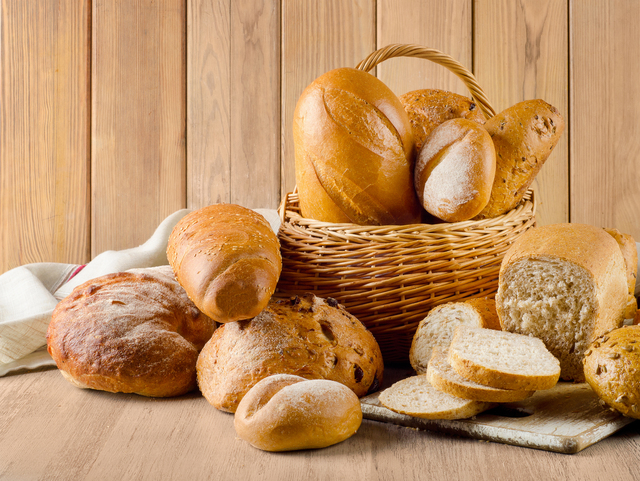Can Dogs Eat Bread? A Comprehensive Guide for Dog Owners
As a dog owner, I’m sure you’ve asked yourself this question: “Can dogs eat bread?” Well, you’re not alone. Many dog owners wonder about the suitability of various human foods for their canine companions.
In this article, we’re going to explore that question, examining the types of breads that dogs can eat, what breads to avoid, along with the benefits and potential risks of giving your dog bread.
What is Bread?
Bread is a staple food in many cultures, made primarily from dough of flour and water. It’s usually baked and comes in a multitude of varieties, including white, whole grain, and gluten-free.
Can Dogs Eat Bread?
The Basics
The simple answer is yes, dogs can eat bread, but it should be fed in moderation and should not replace a healthy, balanced diet tailored to your dog’s needs.
Types of Bread
There are countless types of bread, but not all of them are suitable for dogs. Some, like whole grain bread, can be healthier options, while others, such as raisin bread, should be completely avoided due to the toxicity of raisins for dogs.
Bread That Can Have Some Health Benefits for Dogs:
*Keep in mind, while these breads have health benefits, they should still be fed as a treat, and not as part of the everyday doggy diet.*
1. Whole Wheat Bread: Unlike white bread, whole wheat retains the bran and germ, making it a better source of fiber and nutrients. While still not a nutritional powerhouse, it’s a slightly healthier option if you’re giving your dog bread.
2. Multigrain Bread: This type of bread is made with different types of grain, like barley, oats, and flax. It could be a healthier choice, thanks to the extra fiber and nutrients, but be sure to read the label. Some multigrain breads are mostly made with white flour and just have a small amount of other grains.
3. Rye Bread: Rye bread can be a good source of fiber, but like other bread, it’s not a nutritionally complete food for dogs. Some dogs may also have trouble digesting it.
Breads That Are in the Middle:
White Bread: Made from wheat that has had the germ and bran removed (the parts that contain fiber and nutrients), white bread is a source of energy but provides little nutritional value. It’s generally safe for dogs but should be given sparingly because it can contribute to weight gain.
Breads to Avoid Feeding Dogs:
1. Sweet or Flavored Breads: Breads like banana bread or zucchini bread might be tasty for humans, but they’re not suitable for dogs. They often contain added sugar, which dogs don’t need, and could have other ingredients that are harmful to dogs, like chocolate or raisins.
2. Bread with Seeds or Nuts: Some breads contain seeds or nuts. While many of these are safe for dogs, others are not. For instance, bread with macadamia nuts is a definite no-no, as macadamia nuts are toxic to dogs.
3. Bread with Garlic or Onions: Both garlic and onions are toxic to dogs, so any bread containing these should be avoided.
4. Raisin Bread: This is a type of bread that should be strictly avoided. Raisins — and grapes — are toxic to dogs, potentially leading to rapid kidney failure, a condition that can be life-threatening. Even a small amount can cause significant harm. If you suspect your dog has consumed raisin bread, contact your vet immediately.
5. Raw Dough: Never give your dog raw bread dough. It can expand in their stomach, causing painful bloating and potentially even life-threatening complications. Furthermore, the yeast in the dough can produce alcohol, which can lead to alcohol poisoning in dogs.
Remember, no matter what type of bread you’re considering giving to your dog, always check the ingredients first to ensure it doesn’t contain anything harmful. And as always, moderation is key. Bread should never make up a significant part of your dog’s diet – it’s a treat, not a staple.
The Nutritional Value of Bread
Bread, specifically whole grain bread, is an excellent source of carbohydrates. It provides energy, essential for active dogs who love to run and play. Depending on the type of bread, it may also contain fiber, which aids in digestion, and other nutrients like protein and fat.
However, the nutritional content of bread varies widely depending on the type. Whole grain breads tend to be more nutritious, containing more fiber and essential nutrients like B vitamins, iron, and magnesium, while white bread is often less nutritious due to the refining process which removes the bran and germ from the grain.
It’s crucial to remember, however, that while these nutrients are beneficial, bread should not replace a balanced, dog-appropriate diet. Dogs need a wide range of nutrients that bread alone cannot provide, such as protein from meat sources, specific vitamins and minerals, and certain fats.
Remember, bread should be viewed as an occasional treat, not a meal replacement. The majority of a dog’s diet should come from high-quality, specially formulated dog food. When it comes to bread or any other human food, moderation is key. Too much of a good thing can easily lead to weight gain and other health problems.
Potential Health Benefits of Bread for Dogs
Though bread isn’t inherently harmful to dogs, it isn’t particularly beneficial either, especially when compared to the nutrient-rich food your dog should be eating daily. However, it’s not devoid of all nutritional value. Here are some potential health benefits of bread for dogs:
1. Energy Source: Bread, like other carb-rich foods, provides a source of energy. Carbohydrates are broken down into glucose, the primary source of energy for your dog’s cells.
2. Digestion Aid: Whole grain bread is a source of dietary fiber, which can aid in digestion. It helps regulate bowel movements and can help your dog feel full, which can be beneficial if your dog needs to lose weight.
3. Vitamins and Minerals: Whole grain bread can provide some vitamins and minerals, like B vitamins, iron, and magnesium. However, the amounts are small, and your dog should get most of these nutrients from their regular dog food.
Remember, bread should be given as a treat and not as a regular part of your dog’s diet. Too much bread can contribute to weight gain and other health problems. Moreover, it’s also important to note that not all bread is created equal — avoid giving your dog bread that contains toxic ingredients like raisins, onions, or garlic.
Potential Risks of Bread for Dogs
While plain, unsweetened, and unflavored bread is generally safe for dogs to consume in small quantities, there are several potential risks that pet owners should be aware of:
1. Overfeeding and Weight Gain: Bread is high in calories and low in nutritional value. Feeding too much bread to your dog can contribute to obesity and associated health problems like diabetes and heart disease.
2. Choking Hazard: Large chunks of bread can pose a choking hazard, especially for small dogs. Always break bread into bite-sized pieces before feeding it to your pet.
3. Digestive Issues: While small amounts of bread can help soothe an upset stomach, too much can lead to constipation due to its low fiber content compared to other foods.
4. Toxic Ingredients: Some breads contain ingredients that are toxic to dogs, such as raisins, onions, garlic, chocolate, and certain types of nuts. Always check the ingredients before feeding any bread to your dog.
5. Yeast Dough: Raw bread dough can be especially dangerous for dogs. As it ferments in the warm, moist environment of the stomach, it expands, which can lead to bloating, a potentially life-threatening condition. The yeast fermentation also produces alcohol, which can cause alcohol poisoning in dogs.
6. Nutrient Deficiencies: If bread forms a significant part of your dog’s diet, they might not be getting the balanced nutrition they need for good health. Dogs need a diet rich in protein, vitamins, and minerals, which bread doesn’t provide in significant amounts.
7. Bread and Allergies
Just like humans, dogs can be allergic to wheat. If you notice signs of an allergic reaction like itching, swelling, or difficulty breathing after feeding your dog bread, stop feeding it and consult your vet.
8. Raw Dough: A Big No-No
Raw bread dough should never be given to dogs. It can expand in the stomach causing bloating and potentially life-threatening complications. Moreover, it contains yeast which can produce alcohol and cause alcohol poisoning.
When is Bread a Good Idea for Dogs?
Bread can be used as an occasional treat or to mask medication, but it should never make up a large part of a dog’s diet. If you want to include bread in your dog’s diet, it’s best to consult with your vet.
How to Serve Bread to Your Dog
If you decide to feed your dog bread, ensure it is plain, cooked bread without any additives like nuts, seeds, or raisins. Bread should be given in small quantities, either as a treat or mixed in with their regular dog food.
Can Dogs Eat Bread Conclusion
While dogs can eat bread, it should be considered a treat rather than a meal replacement. Be mindful of the type and quantity of bread you’re feeding your dog, watch out for any potential allergic reactions, and always consult your vet if you have any doubts or concerns.
Can Dogs Eat Bread FAQ
Can dogs eat bread every day?
While dogs can eat bread, it’s not recommended to feed them bread every day. Bread should be considered an occasional treat, not a regular part of their diet. Like all treats, bread should make up no more than 10% of your dog’s daily caloric intake.
Is bread toxic to dogs?
Plain bread is not toxic to dogs. However, certain types of bread may contain ingredients that can be harmful to dogs, such as raisins, garlic, onions, or certain types of nuts. Always check the ingredients before giving bread to your dog.
What type of bread is best for dogs?
If you choose to feed your dog bread, opt for plain, whole grain bread. Whole grain bread is less processed and contains more nutrients compared to white bread. However, even whole grain bread should only be given as an occasional treat.
Can bread help a dog with diarrhea?
Plain bread can help to absorb excess fluid in the gut, which may help to firm up your dog’s stool if they have diarrhea. However, it’s not a cure for diarrhea and if your dog is suffering from persistent diarrhea, you should seek veterinary advice as it can be a sign of a more serious health issue.
Can puppies eat bread?
Yes, puppies can eat bread, but it should only be given in small quantities and not as a meal replacement. Just like adult dogs, puppies should have a balanced diet tailored to their specific needs. If you have any concerns about your puppy’s diet, it’s best to consult with your vet.




